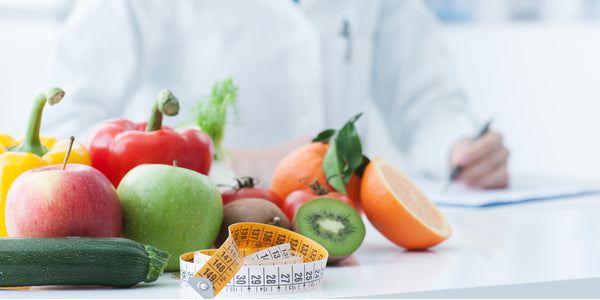
Weight is either good or bad. Good if you lose it, but bad if you don't. What most people fail to realize is that one of the reasons they aren’t able to lose weight, or keep it off, is the lack of balance between nutrition and weight loss.
Generally, if someone tells you that you need fat in order to lose weight, you would look at them as if they had just committed a crime. Sadly, though, this perception that you don’t need nutrients like healthy fats in order to lose weight is what causes the stress of yo-yo and crash dieting.
“In order for your metabolism to burn excess stored fat, you need to create a working balance between nutrition and weight loss,” says Caroline J. Cederquist, M.D., a certified expert in the field of healthy weight loss, and the founding physician behind BistroMD. “Without a healthy balance of protein, complex carbohydrates, and healthy fats, our bodies will starve, and pull nutrients from our muscle tissues and cells in order to give our bodies needed energy. This has a counterproductive effect on your metabolism’s ability to burn fat.”
To help you get the best balance between nutrition and weight loss, our founding physician is sharing three simple tips with you that will help you lose weight, and keep it off for good.
1. Cook Your Own Meals Instead of Eating Out
In order to reach your weight loss goals, it’s important that you stay away from the “bad” stuff. Instead of eating out on your next "night off" cook your own meals.
“Steer clear of bagged snacks and junk food if you want to lose weight,” says Dr. Cederquist. “Be selective with restaurants and road-side diners, as they may re-use their oil, making it thick with toxins and fat that are harmful to your health.”
When you cook for yourself at home, you can use your own oil, and you can use less of it. Making a meal from scratch is much healthier than eating out at a restaurant.
Research healthy recipes on the internet, buy a unique weight loss cook book, and make it a family affair. This is a great way to teach your kids how to eat healthier, and gives you more time to spend together as a family. Just make sure these recipes still contain the nutrients that you need: protein, carbohydrates, and healthy fats.
There are simple, healthy recipes out there that make cooking less of a hassle. If you choose a recipe that only requires one pan, or a slow-cooker recipe, then you can really decrease your time in the kitchen, not to mention cleanup.
2. Read Before You Buy
This is important when it comes to nutrition and weight loss, as the wrong ingredients could mess up your progress
“Before you buy any product, take a moment to read the list of ingredients,” says Dr. Cederquist. “One rule of thumb: if the product contains a lot of additives, it’s not what it was when it was picked off the plant.”
Here is a video of our founding physician, Dr. Caroline Cederquist, explaining why the right kind of nutrition is important for weight loss, and why chemicals and additives in food should be avoided:
For example, a baked potato is very different from a bag of seasoned potato chips. Potato chips have oil and a long list of chemicals and colorants, not to mention a high amount of salt.
Instead, look for simple ingredients, and if you don’t know what an ingredient is, do your research. Watch out for foods that have high amounts of fat, sodium or added sugar.
Also, steer clear of products that contain stabilizers, artificial preservatives, artificial flavors, and colors. Be sure to avoid food that contains hydrogenated or partially hydrogenated oils. This leads to more weight gain, and can be damaging to your cell membranes.
3. Pack Your Pantry with Healthy Food
When it comes to nutrition and weight loss, packing your pantry with healthy food is a good idea, especially if you like to snack.
“Make subtle changes in the way you eat,” says Dr. Cederquist. “If you are used to having a certain snack between meals, switch to a healthier alternative. Preferably, you should choose snacks that are high in protein, without a lot of sugar or fat.”
Nuts and seeds are good for snacking, and are a healthier supply in your pantry.
By taking these healthier approaches to enjoying food, creating a balance between nutrition and weight loss will be a little less stressful and a lot more satisfying.





